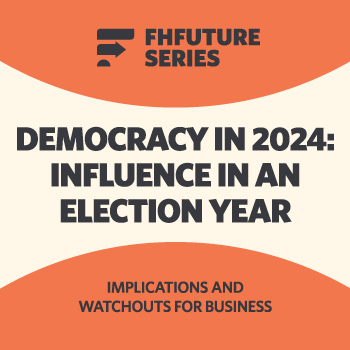FH Shares: Diabetes Awareness Week
For Diabetes Awareness Week, senior account executive, Louise Fathers and designer, Ben Calloway share their experiences of living and working with Type 1 Diabetes.
Q. How does diabetes impact your day-to-day life?
Louise: Diabetes affects you differently on different days, depending on the weather, where you are in your hormone cycle, how much you’ve been moving recently and just about every other variable in your life you can think of!
I’m used to it now, but I think the biggest thing is just having to plan — it’s more difficult to just grab a sandwich on the go as that’s pretty carby, and I can’t just decide I’m going to go for a run now as you need to make sure your sugars are high enough to sustain your moving for the 30 minutes or so you’re exercising. I think that need to plan is probably the biggest thing.
Ben: Diabetes affects most aspects of my life, it’s a constant thing my mind is keeping track of — how are my blood sugar levels? How much insulin do I need? Have I taken too much insulin? Have I eaten enough?
Q. What would you like your colleagues to know about living with diabetes?
Ben: I think the awareness that some days can be more stressful than others, as being a hormonal condition, treatment isn’t the most linear process. Some days things can be out of whack and it’s easy to feel down or stressed out about it.
Louise: I think to describe the feeling of low and high blood sugar. Lows feel like when you stand up too quickly and feel overcome with dizziness plus sweats, and highs like a bit of a hangover with the dry mouth and headache — not fun!
Q. What advice would you give to a colleague with diabetes?
Louise: I think being open about your disease is so important. You have to live with it and it’s a part of who you are, so trying to hide taking your injections or pricking your finger to test your sugars just adds pressure to the situation of having to take on the role of a pancreas. Also, take it easy on yourself — everyone has bad days so don’t hate yourself if you have a day of highs.
Ben: I think having the space to have conversations about what we experience is very helpful. After my diagnosis, speaking with Louise played such a huge role in coming to terms with it, and something as simple as grabbing a coffee with someone who is experiencing the same thing can be a relief!
Q. What’s the funniest assumption you’ve been subjected to since your diagnosis?
Ben: Bar people thinking you can’t eat anymore; I find the interest in how I monitor my blood sugar amusing. I wear a device on my arm I tap with my phone to give me a sugar reading – it’s a strange action, but friends and colleagues seem to be jealous of my technology-enhanced arm!
Louise: The “can you eat that?” is pretty annoying, but I have the libre on my arm too and the reaction when I’m anywhere outside of Europe is always pretty funny. I’ve had people ask if it’s a contraceptive patch, an insect repellent capsule and a tracker!
Q. What advice would you give to a line manager of a person with diabetes?
Louise: Just let your ‘linee’ know that it’s okay to take some time to sort your sugars or explain to teams that you’re having a bad day and you need some space/pressure released. Health comes first!
Ben: Like most things, it differs from person to person but having an understanding of some of my previous points is helpful, and ensuring there’s some support if needed. I personally don’t like to feel singled out, but I know my team understand what’s on my plate, and I’m happy to talk about it.
Find Out More
-
Democracy in 2024: Influence in an election year
May 2, 2024
-
Platinum CMS Award
March 13, 2024


